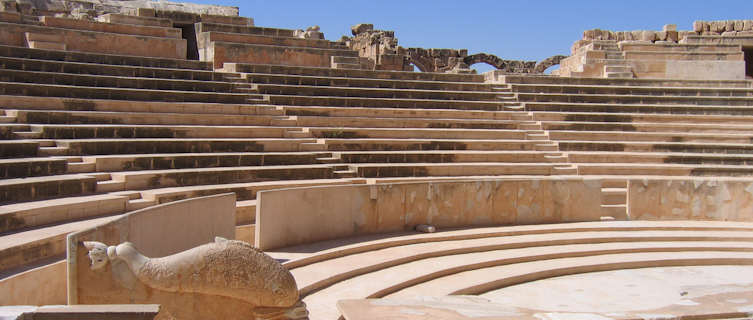
Tripoli travel guide
Travel advice for Tripoli is constantly changing due to current events. Keep updated with the latest Libya travel advice.
It was once home to the battling people of Carthage, but for the populace of Libya’s capital Tripoli, war is today less a source of pride and more an ongoing cause of grief.
Captured by Islamist rebels in the wake of dictator Muammar Gaddafi’s downfall in 2011, Libya’s largest city is on the verge of becoming the capital of a failed state, along the same lines of Somalia.
The tragedy of all this is that Tripoli has much to offer, from spectacular Roman ruins to friendly locals and a glamorous seafront corniche that wouldn’t be out of place across the Mediterranean in Italy.
Indeed, in the years leading up to the Libyan implosion, the city was starting to build up a reputation as a tourist destination, albeit one blighted by the lurking presence of the malign Gaddafi.
Drawn by the wonderful Jamahiriya Museum with its superb Roman mosaics and the city's atmospheric medina, with its labyrinthine alleys and Ottoman monuments, Tripoli combined traditional character with a vibrant approach to commerce. The elegant, colonial city centre (now much damaged) was built by the Italians and is enormously popular with domestic tourists and the few hardy souls who still venture into Libya.
Just as stunning is the magnificent Red Castle, a vast palace complex on the outskirts of the Medina that now houses a museum and is a reminder of the Ottoman rule that began in the 17th century and continued into the early 20th century.
Not far from the Libyan capital is another striking piece of ancient architecture, Leptis Magna, a Roman creation that was once one of the biggest cities in what was then the province of Tripolitania.
Here’s the real shame: Libya’s capital really is an engaging place – if only the fighting that has blighted it for centuries would stop.
Do you have any Feedback about this page?
© 2026 Columbus Travel Media Ltd. All rights reserved. No part of this site may be reproduced without our written permission, click here for information on Columbus Content Solutions.








 You know where
You know where